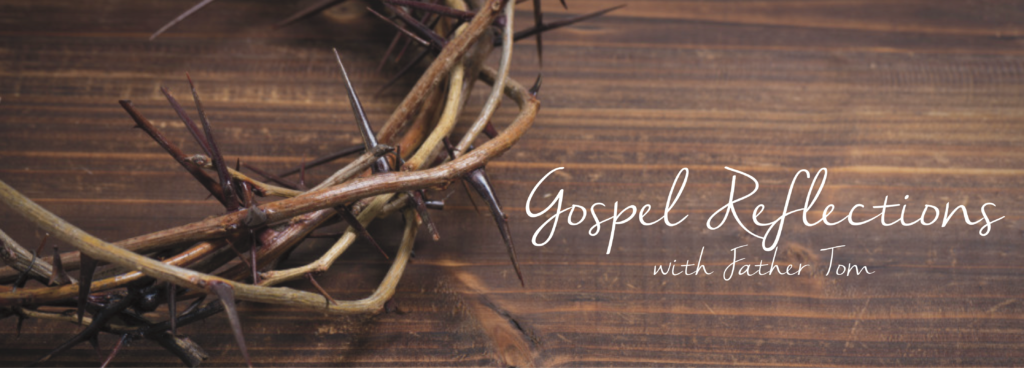
In different ways, all three readings of today’s Mass deal with the theme of eternal life.
An old and infirm man was living in a shack on the edge of the forest. One winter’s morning he got up to find only one meal of porridge left, the fireplace empty, and snow on the ground. He felt like asking God to take him to heaven there and then. However, he managed to summon up a little spirit, and went into the forest to collect firewood.
He collected a large bundle of sticks. Then he put a rope around it and tied a knot. However, when he tried to lift the bundle onto his shoulders, he found that he couldn’t even move it. With that a wave of depression swept over him. He looked up to heaven and said, “Lord, take me now. I’ve nothing left to live for.”
In an instant a strapping young man appeared at his side. The stranger introduced himself as the Angel of Death and said, “You sent for me. Well, now that I’m here, what can I do for you?” Quick as a flash the old man replied, “Hey son, would you ever give me a hand with this bundle of sticks.”
As we go on in life we become increasingly aware of how fleeting life is, and how precarious is our hold over it. In spite of ourselves we become familiar with the thought of death. But this need not be a negative or morbid thing. In fact, it can be a very positive thing. Thinking about death can result in a true love of life. When we are familiar with death, we accept each day as a gift. And when we accept life bit by bit like this, it becomes very precious.
By facing our mortality we are put in touch with that other life, eternal life, the seeds of which have been planted in our hearts and souls. Death is the passage to a new life, which (as Jesus says in the Gospel) utterly transcends the life we know now. This sounds beautiful, but that doesn’t mean it’s easy.
Our passage from this world is preceded by many other
smaller passages. When we were born we made the passage from life in the womb
to life outside the womb. When we went to school we made the passage from life
in the family to life in the larger community. Those who have married have made
the passage from a life with many options to a life committed to one person.
Those who have retired have made a passage from a life of clearly defined work
to a life without such work. Each of these passages results in a kind of death
but also leads to new life. When we live these passages well, we are preparing
ourselves for our final pas-
sage.
The thing that best helps us to confront the reality of death is our faith. Faith enables us to face death with courage and hope, because we know we can overcome it in Christ. But the courage and faith of people such as the woman and her seven sons (First Reading) also serve as a powerful example to us who follow them in faith. The martyrs, by their witness to the Spirit, show that life is stronger than the forces of death.
“Proofs” based on the immortality of the soul are not very helpful. For the Christian, the real ground of immortality is fellowship with the risen Lord and with the living God. As Paul says, “God has given us his love and, through his grace, inexhaustible comfort and such sure hope” (Second Reading).
God has made promises to us in Christ which cannot fail, promises which death cannot annul. Our hope of resurrection lies in the power and love of God. Death is not the enemy who puts an end to everything but the friend who takes us by the hand and leads us into the Kingdom of eternal love.
